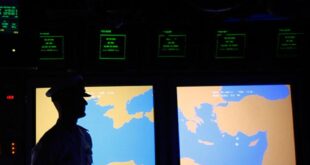 TEHRAN (FNA)- Russian Foreign Minister Sergey Lavrov said no one doubts Iran’s right to use peaceful nuclear energy in accordance with the Non-Proliferation Treaty (NPT).
TEHRAN (FNA)- Russian Foreign Minister Sergey Lavrov said no one doubts Iran’s right to use peaceful nuclear energy in accordance with the Non-Proliferation Treaty (NPT).
“If and when trust in the peaceful character of the Iranian nuclear program is restored, attitude towards it will be the same as to similar programs of any other non-nuclear weapon state party to the treaty on the Non-Proliferation of Nuclear Weapons,” said Lavrov in an interview with Arab-language newspaper Al-Hayat.
This adds to opportunities for Iran to actively continue political, economic and other cooperation with the international community, especially in the area of peaceful nuclear activities, he said.
He added that Russia emphasizes the settlement of the Iranian nuclear issue exclusively through political and diplomatic means.
“All the issues have to be tackled on the negotiating table. We see no alternative to this.” He said according to a press tv report.
Mentioning contacts between Tehran and Moscow, he asked the Iranian side to benefit itself of the proposals made by the Six (Russia, Britain, China, the US, France plus Germany) in Geneva in July for launching the negotiation process.
Washington and its Western allies accuse Iran of trying to develop nuclear weapons under the cover of a civilian nuclear program, while they have never presented any corroborative document to substantiate their allegations. Iran denies the charges and insists that its nuclear program is for peaceful purposes only.
Tehran stresses that the country has always pursued a civilian path to provide power to the growing number of Iranian population, whose fossil fuel would eventually run dry.
Seeking to step up the pressure, the United States and the 27-nation EU have threatened more sanctions if the Islamic Republic does not stop enriching uranium.
Iran has always dismissed western threats of sanctions and military action, stressing that the language of force strengthens Iranians’ national resolve.
Iran has also presented a more all-embracing package of proposals to world powers, offering collective cooperation in solving major world issues.
The offer by the world powers is said to be a revised version of one rejected by Iran two years ago while western diplomats said that it contains no new enticement compared with the package of proposals presented to Iran in 2006.
The Islamic Republic says that it considers its nuclear case closed as it has come clean of IAEA’s questions and suspicions about its past nuclear activities.
Political observers believe that the United States has remained at loggerheads with Iran mainly due to the independent and home-grown nature of Tehran’s nuclear technology, which gives the Islamic Republic the potential to turn into a world power and a role model for other third-world countries. Washington has laid much pressure on Iran to make it give up the most sensitive and advanced part of the technology, which is uranium enrichment, a process used for producing nuclear fuel for power plants.
Washington’s push for additional UN penalties contradicts the report by 16 US intelligence bodies that endorsed the civilian nature of Iran’s programs. Following the US National Intelligence Estimate (NIE) and similar reports by the IAEA head – one in November and the other one in February – which praised Iran’s truthfulness about key aspects of its past nuclear activities and announced settlement of outstanding issues with Tehran, any effort to impose further sanctions on Iran seems to be completely irrational.
The February report by the UN nuclear watchdog, the International Atomic Energy Agency, praised Iran’s cooperation in clearing up all of the past questions over its nuclear program, vindicating Iran’s nuclear program and leaving no justification for any new UN sanctions.
The UN nuclear watchdog has also carried out at least 14 surprise inspections of Iran’s nuclear sites so far, but found nothing to support West’s allegations.
The Vienna-based UN nuclear watchdog continues snap inspections of Iranian nuclear sites and has reported that all “declared nuclear material in Iran has been accounted for, and therefore such material is not diverted to prohibited activities.”
Iran has also insisted that it would continue enriching uranium because it needs to provide fuel to a 300-megawatt light-water reactor it is building in the southwestern town of Darkhoveyn as well as its first nuclear power plant in the southern port city of Bushehr.
Iran currently suffers from an electricity shortage that has forced the country into adopting a rationing program by scheduling power outages – of up to two hours a day – across both urban and rural areas.
Iran plans to construct additional nuclear power plants to provide for the electricity needs of its growing population.
Many world nations have called the UN Security Council pressure against Iran unjustified, especially in the wake of recent IAEA reports, stressing that Tehran’s case should be normalized and returned to the UN nuclear watchdog due to the Islamic Republic’s increased cooperation with the agency.
 Eurasia Press & News
Eurasia Press & News



